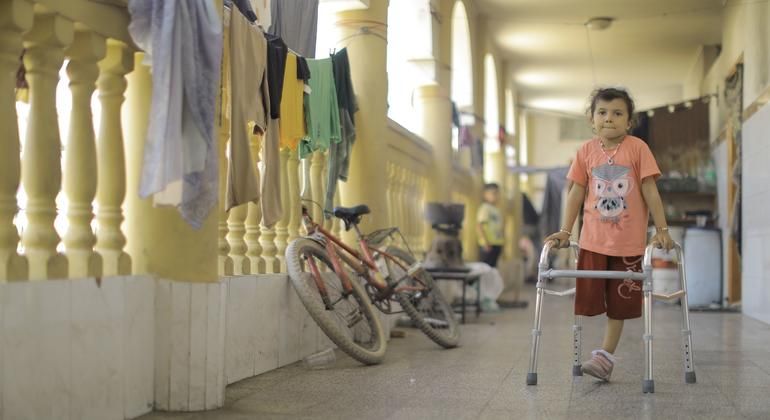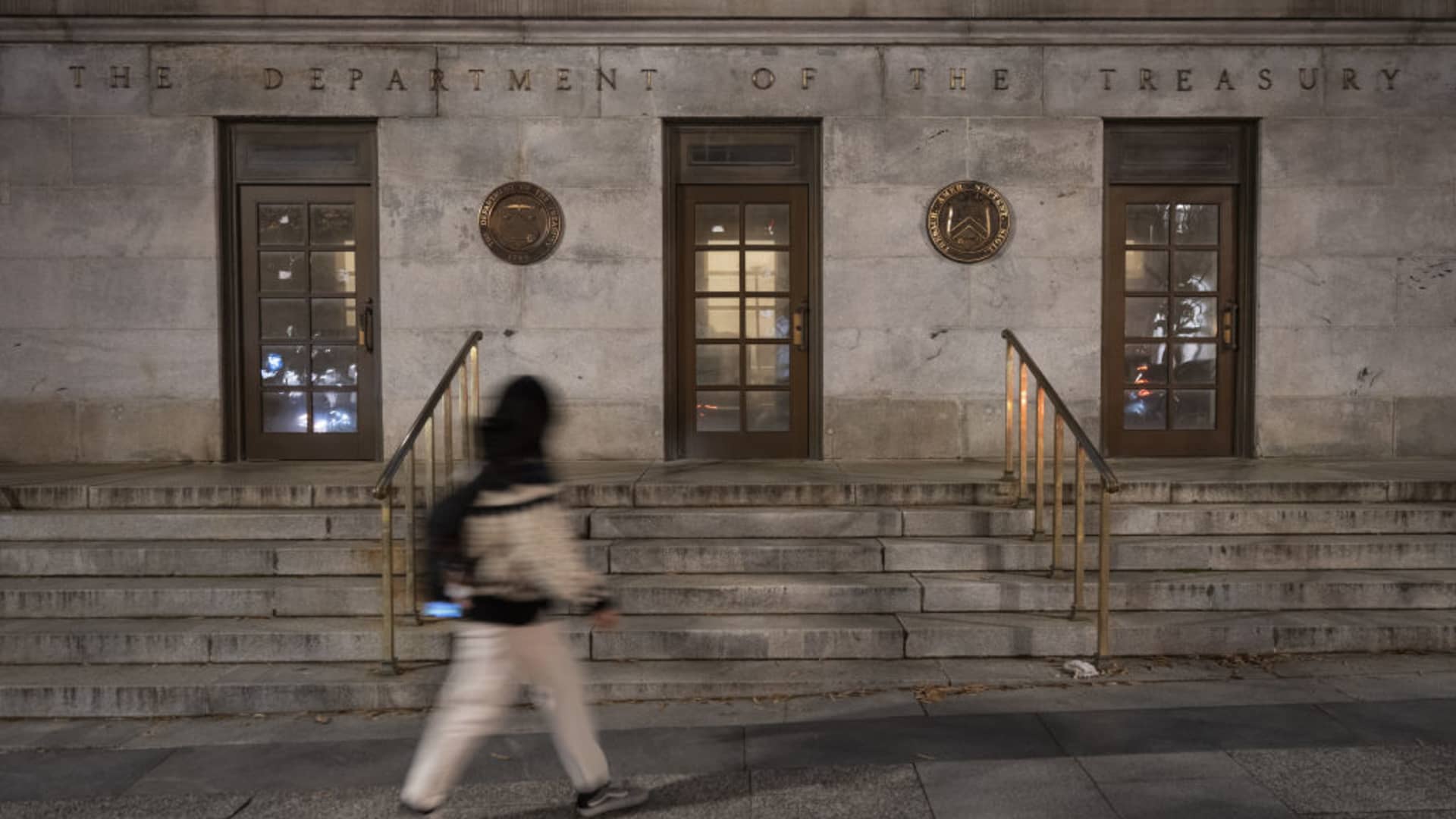WHO chief Tedros Adhanom Ghebreyesus told reporters that Al-Ahli and Patient Friendly hospitals in northern Gaza are the last facilities unable to operate due to nearby fighting.
He said patients from Al-Ahli have been evacuated to Indonesian Hospital, which is now operating at three times its capacity.
Thousands of people are waiting to be evacuated
“More than 10,000 patients still need medical evacuation “For treatment that cannot be provided in Gaza,” he said, stressing that “multiple evacuation corridors to the West Bank, Egypt and Jordan are urgently needed.”
Tedros noted that nearly the entire population of Gaza faces high levels of acute food insecurity, with nearly one in four people at risk of starvation.
Meanwhile, very few supplies are entering the enclave, with only five WHO trucks allowed in last week.
Aid trapped at the border
Tedros said more than 34 trucks are waiting at the El Arish crossing with Egypt, 850 pallets of supplies are waiting to be picked up and another 40 trucks are parked in Ismailiya, also in Egypt.
He called for the immediate lifting of restrictions on the entry of supplies into Gaza, saying that “the people of Gaza, who have nothing to do with this conflict, should not be the ones to pay the price for it.”
People look at the damage caused after a school was bombed in central Gaza.
'A perfect breeding ground for diseases'
WHO Director for the Eastern Mediterranean Region Dr Hanan Balkhy also briefed reporters on her 11-day visit to the occupied Palestinian territories, describing the situation in Gaza as “very worrying both on a human and humanitarian level.”
The lack of fuel is compromising all health and humanitarian operations there, he said, with sewage and garbage littering the destroyed streets and the smell of fermenting waste permeating the air.
“This situation is creating the perfect breeding ground for the spread of diseases, leading to an increase in cases of acute watery diarrhea and acute respiratory infections, among many others,” he said.
Breakdown of public order
“Ongoing violence and deteriorating public order are devastating an already paralyzed city. and creating an extremely high-risk environment, not only for humanitarian workers, but for everyone in Gaza,” he added.
The collapse of the rule of law also makes it nearly impossible to manage gender-based violence, exposing displaced Palestinians to additional life-threatening risks.
Although the WHO has expanded its medical supply chain to Gaza to respond to rising hostilities and increasing needs, much of this aid remains “stuck on the wrong side of the borders,” he said, echoing Tedros.
“Even when supplies arrive, the disruption – I repeat once again – of public order makes it difficult for our teams to deliver them to the hospitals that urgently need them,” he added.
Open the borders
Dr. Balkhy also spoke about her visit to the IMC Field Hospital in Deir Al-Balah, central Gaza, which has been relocated twice and tripled in capacity in recent months.
She met a severely malnourished seven-year-old girl who had been evacuated from the north three months ago and is among 10,000 patients waiting to be evacuated out of Gaza to receive specialist care for conditions such as trauma and chronic diseases.
During his stay in the region, the senior WHO official also held meetings with the UN Humanitarian Coordinator for the Occupied Palestinian Territories, Muhannad Hadi, and the UN envoy for the Middle East, Tor Wennesland, and all agreed on the need to address the suffering in Gaza.
“We need Member States to swiftly fulfil their global diplomatic mandate and expedite an immediate truce.,” she said.
“We need all borders, including Rafah, to be opened and allow the entry of fuel, medical supplies and other essential humanitarian aid, and we need those who require medical care to be able to leave.”
Attacks continue in the West Bank
Dr. Balkhy also traveled to the West Bank and witnessed the rapidly worsening health situation there.
He visited Jenin General Hospital and the clinic run by the United Nations agency for Palestine refugees (UNRWA), and learned that health workers had been killed or injured in repeated attacks. He also saw extensive damage to infrastructure and medical equipment.
Faced with damaged roads and access restrictions, WHO and its partners, including the Palestine Red Crescent Society, have set up mobile medical services to reach people in affected areas, he said.
The UN agency has also supported training in large-scale casualty management and response planning at Jenin General Hospital and six other hospitals in the West Bank.
“Our goal is seamless and effective trauma care. “At all levels, based on the lessons learned in Gaza,” he said.
Supporting regional health systems
Dr Balkhy also highlighted the need to strengthen already fragile health systems in neighbouring Jordan, Lebanon and Syria.
The UN expressed extreme concern over the escalation of violence along the Lebanese-Israeli border, which has led to increased deaths and injuries among civilians and health workers, as well as displacement and damage to health infrastructure.
“In our region, entire generations have grown up knowing nothing but conflict and deprivation.“Addressing the political root causes of these emergencies is not only a humanitarian necessity, but a strategic investment in regional stability and security.”












